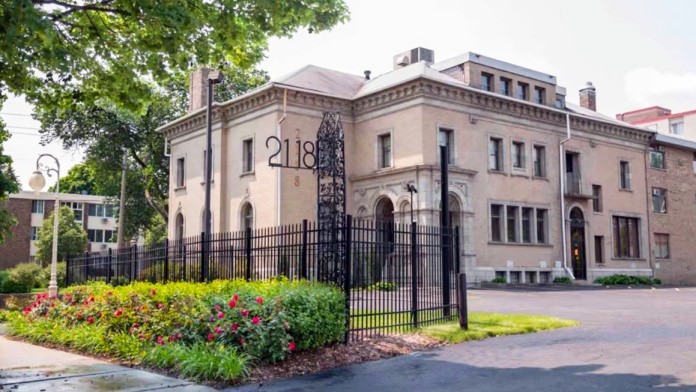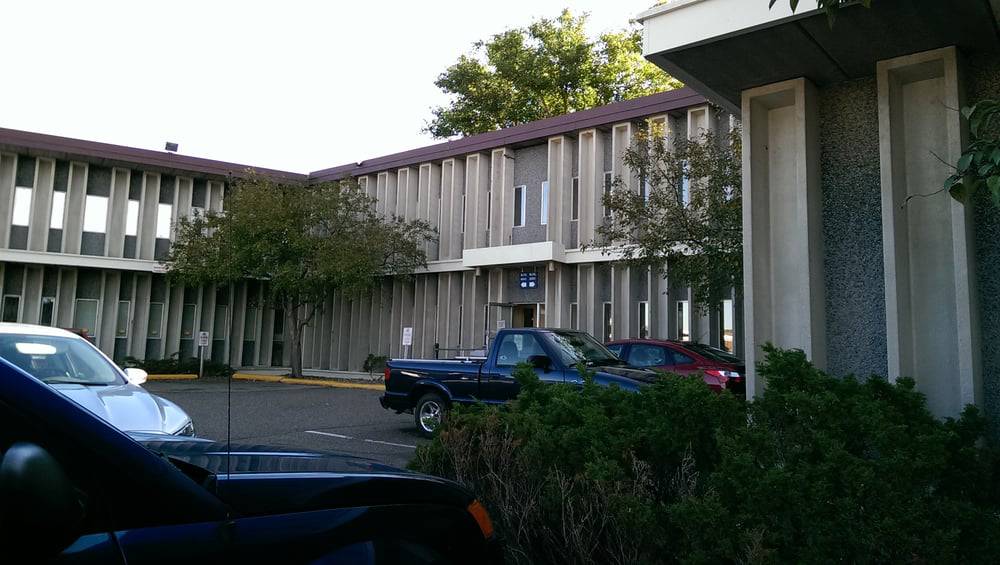The worst emergency room in life, they do not care about the patient or how severe the emergency is, they care that they pay what is due and as fast as possible! I do not recommend it but not even jokingly
About Mercy Hospital – Minneapolis
Allina Health’s Mercy Hospital in Coon Rapids, Minnesota, has some strong programs for treatment of mental health, behavioral, and addiction issues. On top of being a full service physical and mental health hospital with an emergency room to address crisis situations there are inpatient, partial hospitalization (PHP), and outpatient care programs available for adults.
Unique Care Options
One unique service that they offer is an expressive arts and mindfulness mental health day treatment for adults. It offers more than just talk therapy as a way to get in touch with your emotions and gain perspective on life. It’s not far from Mercy Park if you’d like to self-reflect in the great outdoors. There’s also an adult rehabilitation mental health program.
It’s also unique because it has a Mental Health and Addictions Connection line that allows you to connect with resources for addiction or mental illness questions and concerns anytime day or night. After your initial contact, there’s an assessment done to see what your needs are and to develop an individual treatment program to meet those needs.
Specialized Addiction Treatment Program
The drug and alcohol program typically lasts three to four months and is often covered by health insurance. If you require more support than this program offers (less than nine hours a week) then you may also attend an intensive outpatient program.
There are also addiction treatment programs for adolescents through other locations of Allina Health such as Mercy Unity in Fridley. A comprehensive mental health assessment will be performed to ensure the right programs and services are in place.
Group therapy is flexible with groups held in the morning and afternoon. Individual therapy sessions can be scheduled on any weekday except Wednesday. They’re closed on the weekend.
Facility Overview
Latest Reviews
Rehab Score
Gallery
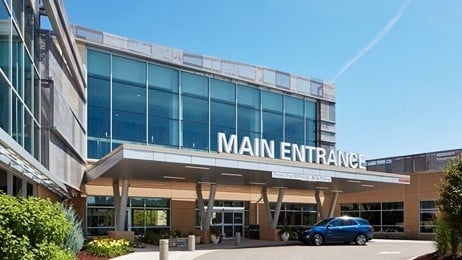
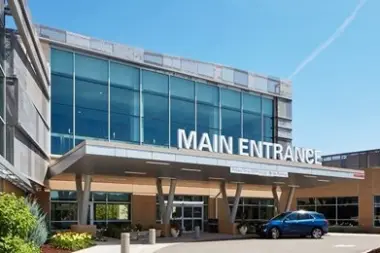
Accepted Insurance







Other Forms of Payment
Medicaid is a state based program that helps lower-income individuals and families pay for healthcare. Medicaid covers addiction treatment so those enrolled can use their coverage to pay for rehab. When a program accepts Medicaid the client often pays very little or nothing out of their own pocket.
Private insurance refers to any kind of healthcare coverage that isn't from the state or federal government. This includes individual and family plans offered by an employer or purchased from the Insurance Marketplace. Every plan will have different requirements and out of pocket costs so be sure to get the full details before you start treatment.
Self-pay involves paying for treatment out of your own pocket. You can use savings or credit, get a personal loan, or receive help from family and friends to fund your treatment. If you don't have insurance or your insurance plan doesn't cover a specific program, self-pay can help ensure you still get the care you need.
Financial aid can take many forms. Centers may have grants or scholarships available to clients who meet eligibility requirements. Programs that receive SAMHSA grants may have financial aid available for those who need treatment as well. Grants and scholarships can help you pai for treatment without having to repay.
Medicare is a federal program that provides health insurance for those 65 and older. It also serves people under 65 with chronic and disabling health challenges. To use Medicare for addiction treatment you need to find a program that accepts Medicare and is in network with your plan. Out of pocket costs and preauthorization requirements vary, so always check with your provider.
Military members, veterans, and eligible dependents have access to specific insurance programs that help them get the care they need. TRICARE and VA insurance can help you access low cost or no cost addiction and mental health treatment. Programs that accept military insurance often have targeted treatment focused on the unique challenges military members, veterans, and their families face.
Addiction Treatments
Levels of Care
Residential treatment programs are those that offer housing and meals in addition to substance abuse treatment. Rehab facilities that offer residential treatment allow patients to focus solely on recovery, in an environment totally separate from their lives. Some rehab centers specialize in short-term residential treatment (a few days to a week or two), while others solely provide treatment on a long-term basis (several weeks to months). Some offer both, and tailor treatment to the patient's individual requirements.
Treatments
Mental health rehabs focus on helping individuals recover from mental illnesses like bipolar disorder, clinical depression, anxiety disorders, schizophrenia, and more. Mental health professionals at these facilities are trained to understand and treat mental health issues, both in individual and group settings.
Programs
Adult rehab programs include therapies tailored to each client's specific needs, goals, and recovery progress. They are tailored to the specific challenges adult clients may face, including family and work pressures and commitments. From inpatient and residential treatment to various levels of outpatient services, there are many options available. Some facilities also help adults work through co-occurring conditions, like anxiety, that can accompany addiction.
Young adulthood can be an exciting, yet difficult, time of transition. Individuals in their late teens to mid-20s face unique stressors related to school, jobs, families, and social circles, which can lead to a rise in substance use. Rehab centers with dedicated young adult programs will include activities and amenities that cater to this age group, with an emphasis on specialized counseling, peer socialization, and ongoing aftercare.
Clinical Services
Cognitive Behavioral Therapy (CBT) is a therapy modality that focuses on the relationship between one's thoughts, feelings, and behaviors. It is used to establish and allow for healthy responses to thoughts and feelings (instead of unhealthy responses, like using drugs or alcohol). CBT has been proven effective for recovering addicts of all kinds, and is used to strengthen a patient's own self-awareness and ability to self-regulate. CBT allows individuals to monitor their own emotional state, become more adept at communicating with others, and manage stress without needing to engage in substance abuse.
ECT is a form of treatment in which controlled electric currents are passed through the brain, sometimes causing short seizures. Treatments are done under general anesthesia. ECT appears to change brain chemistry for the better, and has been shown to provide fast and sometimes dramatic improvements in severe mental health conditions that can exist alongside addiction, including depression, bipolar disorder, psychosis, and suicidality. ECT is also often used by those who prefer it to taking medication.
Experiential therapy is a form of therapy in which clients are encouraged to surface and work through subconscious issues by engaging in real-time experiences. Experiential therapy departs from traditional talk therapy by involving the body, and having clients engage in activities, movements, and physical and emotional expression. This can involve role-play or using props (which can include other people). Experiential therapy can help people process trauma, memories, and emotion quickly, deeply, and in a lasting fashion, leading to substantial and impactful healing.
Group therapy is any therapeutic work that happens in a group (not one-on-one). There are a number of different group therapy modalities, including support groups, experiential therapy, psycho-education, and more. Group therapy involves treatment as well as processing interaction between group members.
Nicotine Replacement Therapy (NRT) is a way of getting nicotine into the bloodstream without smoking. It uses products that supply low doses of nicotine to help people stop smoking. The goal of therapy is to cut down on cravings for nicotine and ease the symptoms of nicotine withdrawal.
Nutrition therapy, aka medical nutrition therapy (MNT), is a way of treating physical, emotional, and medical conditions through diet. Specific dietary plans are designed by professional nutritionists or registered dietitians, and patients follow them in order to positively affect their physical and mental health.
Staff
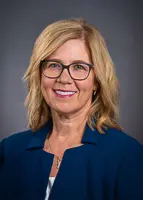
Lisa Shannon
President & CEO

Dr. D'Andre Carpenter
Senior VP of System Chief Nursing Executive
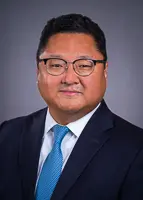
Lawrence Cho
Senior VP of Chief Strategy & Growth Officer
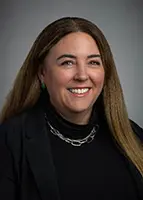
Kerri Gordon
Senior VP of Chief Marketing, Communications & Public Affairs Officer
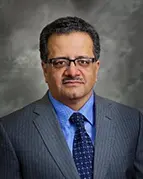
Sanjay Pratap Singh, MD
Executive VP of Chief Clinical Executive
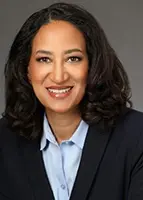
Sarah Stumme
Senior VP of Chief Human Resources Officer

Hsieng Su, MD
Senior VP of Chief Medical Executive
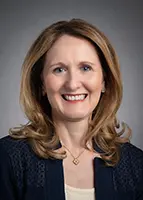
Dominica Tallarico
Executive VP & COO
Contact Information
4050 Coon Rapids Boulevard
Minneapolis, MN 55433








